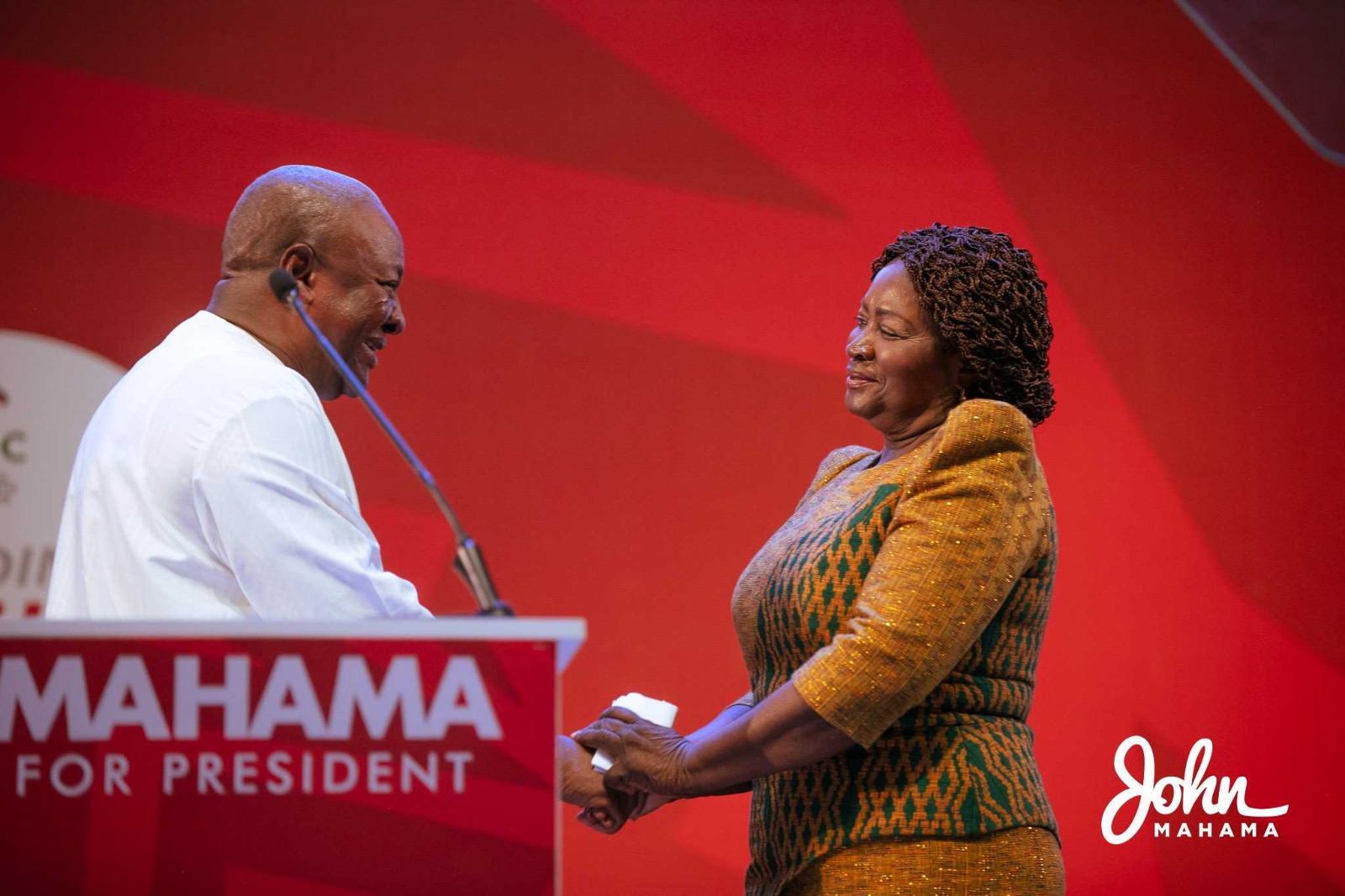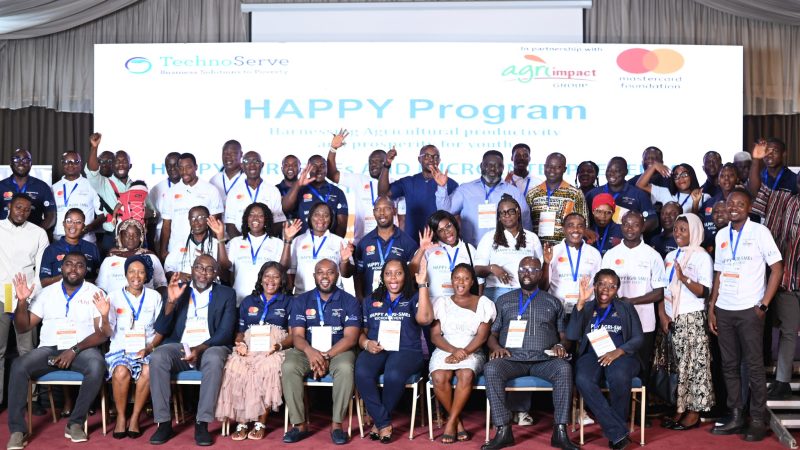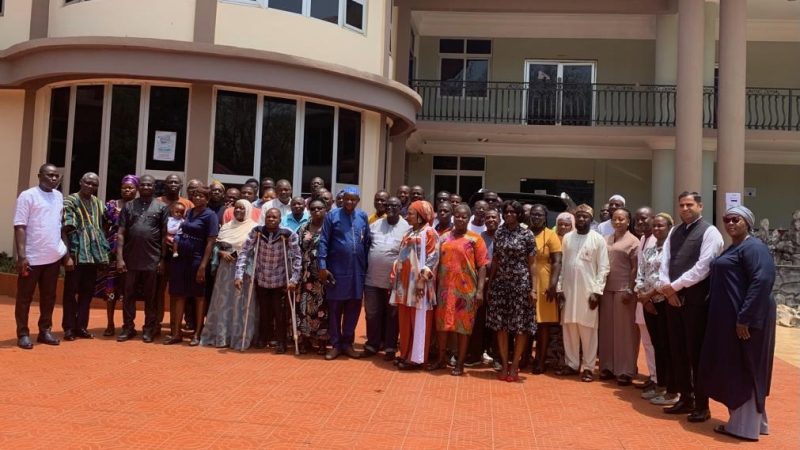
As the sun sets over Accra’s bustling markets, Adwoa, a 38-year-old trader in Makola –– one of Ghana’s busiest market – counts her daily earnings. She has big dreams — to expand her business, hire more women, and provide education, health, food, and a better life for her children. But like thousands of women across Ghana, she faces an insurmountable hurdle: access to affordable credit. Traditional banks demand collateral she does not have, and microfinance institutions and commercial banks impose crushing interest rates that drain her profits. She also lacks financial (literacy) training, reducing her ability to manage and scale businesses effectively.
It is for women like Adwoa that the newly elected National Democratic Congress (NDC) government, led by H.E. John Dramani Mahama and viced by the first female Vice President in the history of Ghana; H.E. Prof. Naana Jane Opoku Agyemang, has pledged to establish a Women Development Bank (WDB). The bank is intended to be a financial lifeline for women entrepreneurs, offering low-interest loans, technical assistance, capacity-building and mentorship programs, business support and advisory services, and mechanisms to regularly monitor the business performance of the women entrepreneurs.
However, turning this ambitious promise into reality requires significant funding. Ghana is currently facing significant fiscal constraints, with its total public debt (as at November 2024) standing at $47.9 billion (GH₵736.9 billion), which represents 72.2% of the country’s Gross Domestic Product (GDP). This debt burden is comprised of external debt amounting to $27.6 billion (GH₵425.3 billion), accounting for 57.6% of the total debt, and domestic debt of $20.3 billion (GH₵311.7 billion), making up the remaining 42.4%. The high debt-to-GDP ratio underscores the government’s limited fiscal space for new expenditures, necessitating innovative financing mechanisms such as gender bonds to fund critical development initiatives, including the establishment of the Women Development Bank.
What Are Gender Bonds and Why Do They Matter?
Gender bonds, a subset of social bonds are fixed-income financial instruments issued to raise capital exclusively for interventions/initiaves that promote gender equality and women’s economic empowerment. These bonds are attractive to impact investors, venture capitalists, development finance institutions, and Environmental, Social, and Governance (ESG )funds that are increasingly looking to invest in initiatives that empower women. Countries like Rwanda, Morocco, South Africa, Tanzania, Chile, and Japan have successfully issued gender bonds to fund programs that provide financial support for women-led enterprises. The African Development Bank (AfDB) and the International Finance Corporation (IFC) have also backed gender bonds as a viable tool for economic transformation. For Ghana, issuing gender bonds would mean harnessing global capital markets to finance the Women Development Bank without overburdening the national budget because the interest payment (however low it is) by women entrepreneurs would be used to offset the bonds. This is highly possible because evidence has shown that loan repayment rates among women are higher and they are less likely to default on loans as compared to men. That is what makes gender bonds self-financing. But how can this be done effectively?
A Structured Approach to Issuing Gender Bonds in Ghana
The government must approach this strategically, ensuring that the bond issuance is attractive to investors while aligning with international best practices. The following steps outline how gender bonds can be successfully used to establish the Women Development Bank:
1. Designing the Gender Bond Framework: The first step is to clearly define how the proceeds from the bond will be used. The government should structure the bond as a Use-of-Proceeds Bond, meaning that all funds raised will be earmarked specifically for financing loans, grants, and financial literacy programs for women entrepreneurs. Additionally, Ghana can introduce Sustainability-Linked Bonds (SLBs), where the interest rates are tied to performance indicators, such as:
• The number of women receiving loans.
• The percentage of funds allocated to rural women-led businesses.
• The repayment success rates among women borrowers.
By linking bond performance to tangible gender-equality outcomes such as percentage increase in loans disbursed to women-led entreprises; reduction in interest rates for women borrowers; number of new financial products tailored for women entrepreneurs; number of rural women entrepreneurs gaining access to credit and formal banking services; investment in women-friendly business hubs; expansion of digital and mobile banking solutions for women; number of women trained in financial literacy and business management; percentage of loan recipients completing training programs; and establishment of mentorship and support networks for women entrepreneurs, Ghana can attract development finance institutions and ESG-conscious investors seeking measurable impact.
2. Targeting the Right Investors: To successfully raise capital, the government must engage key investors such as:
• Multilateral Development Banks: The World Bank, African Development Bank (AfDB), and International Finance Corporation (IFC) have all supported gender bond issuances globally.
• Institutional Investors: Pension funds, insurance firms, and sovereign wealth funds that prioritize ESG investments can be potential buyers.
• Private Sector Players: Companies with strong corporate social responsibility (CSR) mandates can invest in the bond as part of their impact portfolios.
• Philanthropic Organizations and Women-focused Investment Funds: Groups such as UN Women, Women Entrepreneurs Finance Initiative (We-Fi), and the Orange Bond Initiative are actively funding women’s financial inclusion projects.
3. Strengthening the Regulatory and Legal Framework
To attract international and domestic investors, Ghana must align its bond issuance with globally accepted standards. The International Capital Market Association (ICMA) Social Bond Principles provide guidelines on transparency, accountability, and the appropriate use of proceeds. Additionally, the government should work with the Bank of Ghana, the Securities and Exchange Commission, and Parliament of Ghana to ensure legal backing for the bonds, making them a secure investment option.
4. Establishing an Independent Monitoring and Evaluation Mechanism
A crucial factor in the success of gender bonds is investor confidence. To ensure transparency, Ghana should establish an independent Gender Bond Oversight Committee comprising:
• Representatives from the Ministry of Finance, the Minisry of Gender, Children, and Social Protection, the Bank of Ghana, the Securities and Exchange Commission, and the Parliament of Ghana.
• Independent Financial Experts.
• Women’s Rights Organizations.
• International Development Partners.
This committee will oversee fund allocation, track impact, and publish regular progress reports. Investors will be more likely to participate if they see clear accountability measures in place.
Learning from Global Success Stories
1. Asia – The Asian Development Bank’s Gender Bond Initiative: Since 2017, the Asian Development Bank (ADB) has raised over $3.65 billion through gender bonds to fund projects that empower women. The proceeds have supported women entrepreneurs, gender-focused education programs, and financial inclusion initiatives.
2. Rwanda – Gender Bond for Women Entrepreneurs: Development Bank of Rwanda (BRD) in 2023 issued a $24 million gender bond to finance low-interest loans for women entrepreneurs. The program has successfully increased loans to women-led businesss by 30% and reduced gender disparities in business financing. In a unique arrangement, BRD, through the Government of Rwanda, utilised USD10 million in World Bank funds to collateralise the bond. Held in escrow, investors would take ownership of the collateral in the event of a default.
3. Morocco – Supporting Women Entrepreneurs Through Microfinance: In 2021, Banque Centrale Populaire (BCP) of Morocco issued a MAD 200 million ($21 million) gender bond in a private placement to finance women-led micro, small, and medium enterprises (MSMEs). The proceeds were directed to Attawfiq Microfinance, a subsidiary focused on providing accessible financial services to women entrepreneurs, particularly in rural and underserved communities. By removing traditional financial barriers, this initiative empowered women to expand their businesses, create employment opportunities, cater for their families, and contribute to Morocco’s economic growth.
4. Tanzania – Expanding Credit for Women-Owned Businesses: Tanzania has emerged as a leader in gender bond financing with two significant issuances by NMB Bank. In 2022, the bank launched the TZS 75 billion ($32 million) Jasiri Gender Bond, aimed at providing affordable credit to women-led MSMEs. The initiative was followed by the TZS 400 billion ($159 million) Sustainability Bond in 2023, which integrated gender financing into a broader framework supporting education and social impact projects. By utilizing these bonds, Tanzania significantly expanded women’s access to capital, addressing the persistent challenges of high collateral requirements and prohibitive interest rates in the financial sector.
5. South Africa – Incentivizing Gender Equality in Leadership: Unlike traditional gender bonds, South Africa introduced Sustainability-Linked Bonds (SLBs) that tied corporate financial performance to gender-based outcomes. In 2022, Barloworld issued a ZAR 1.1 billion ($65 million) SLB, committing to increasing women’s representation in leadership roles to 50% by 2025. Similarly, Rand Water’s 2021 ZAR 1.2 billion ($83 million) bond mandated that at least 45% of management positions be held by women. These financial instruments incentivized companies to embed gender diversity into their corporate structures, reinforcing the business case for gender-inclusive leadership in South Africa’s private sector.
6. Pan-Africa – A Multi-Country Approach to Women’s Financial Inclusion: In 2021, Ecobank Transnational launched a $350 million 10-year Sustainability Bond, dedicated to financing and refinancing women-led businesses across multiple African countries. This initiative allocated 25% of its proceeds to over 3,000 loans for women entrepreneurs, ensuring financial inclusion at a regional scale. By channeling funds into sectors where women traditionally face funding gaps, Ecobank’s bond played a crucial role in advancing gender-responsive financing across the continent.
7. Chile – Women-Focused Social Bonds: Chile became the first Latin American country to issue a gender bond backed by the Inter-American Development Bank (IDB). The funds provided financial support to over 20,000 women-led enterprises, demonstrating the power of gender bonds in driving economic transformation.
The Impact of Gender Bonds on Ghana’s Women Development Bank
By issuing gender bonds to finance the WDB, Ghana can expect significant economic and social benefits, including:
• Access to at least $200 million in funding over five years.
• Loans for over one million women entrepreneurs, helping them expand their businesses.
• Job creation in both urban and rural areas, particularly in the informal sector.
• Financial literacy training for women, ensuring they can effectively manage and grow their businesses.
• Improved gender equality in financial services, closing the credit gap between men and women.
Turning Political Promises into Economic Realities
The establishment of a Women Development Bank is a bold step toward ensuring financial inclusion for Ghanaian women. However, political promises must be backed by financially sound and sustainable strategies. Gender bonds offer an innovative, practical, and globally recognized way to secure funding without further straining government resources. By drawing lessons from successful gender bond initiatives worldwide and tailoring them to Ghana’s economic landscape, the Mahama-led government can not only fulfill its promise but also position Ghana as a leader in gender-responsive financing in Africa. For Adwoa and millions of other women entrepreneurs, the Women Development Bank—funded through gender bonds—could mean the difference between a struggling business and a thriving enterprise. The time to act is now.
Writer:
Julius Karl D. Fieve: Julius is an accomplished International Development Specialist with over 12 years of experience driving impactful initiatives across Africa. He is currently the Assistant Manager, Gender for FSD Africa – a Foreign, Commonwealth & Development Office (FDCO) financed Kenyan-based financial sector deepening organization. Julius holds two master’s degrees-an MSc in Africa and International Development from the University of Edinburgh, UK and an MSc in Economics from the Kwame Nkrumah University of Science and Technology (KNUST).





